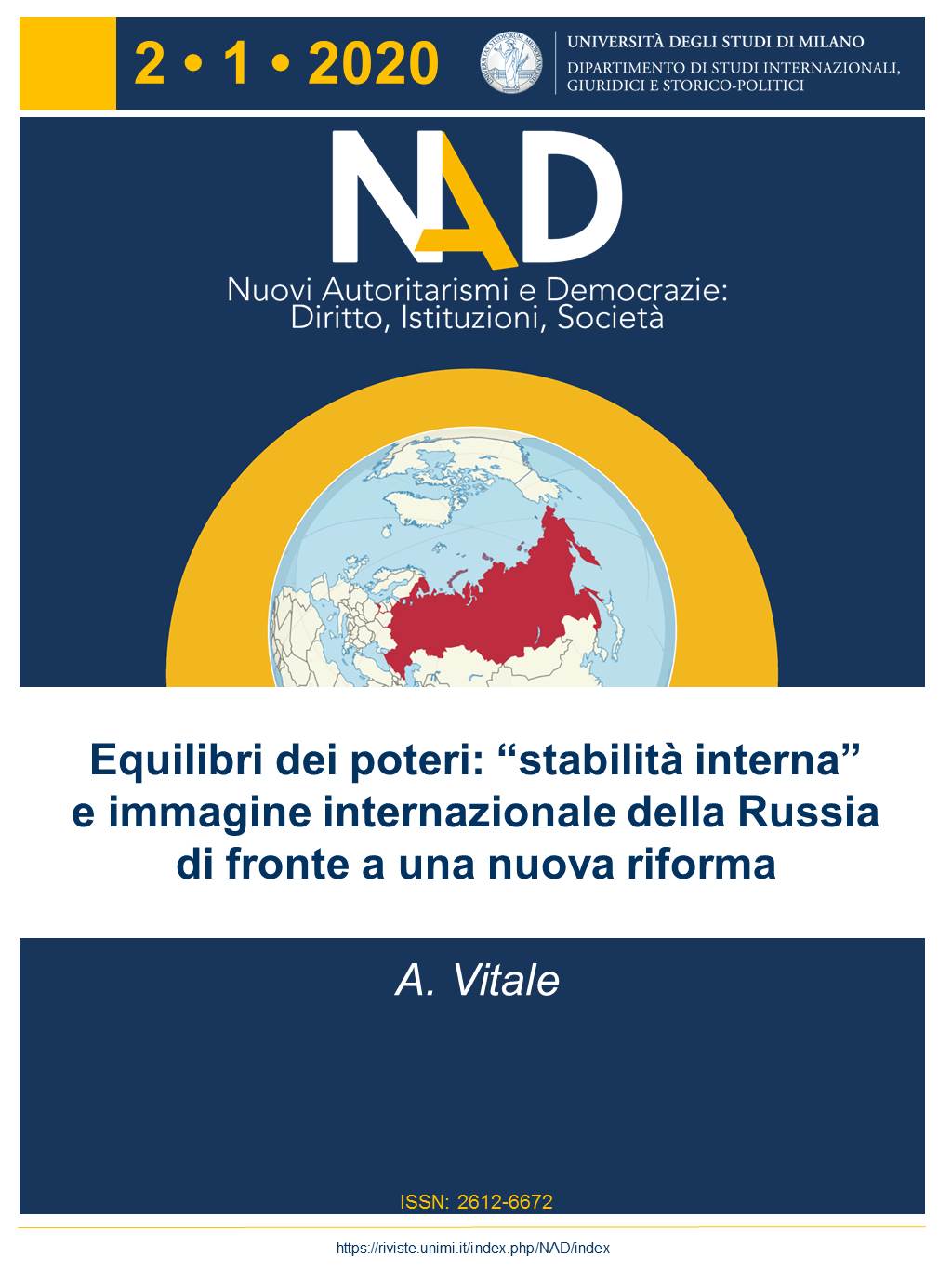Equilibri dei poteri, “stabilità interna” e immagine internazionale della Russia
La riforma costituzionale russa del 2020
DOI:
https://doi.org/10.13130/2612-6672/13792Parole chiave:
Constitution of post-Soviet Russia, Centralization, Political and constitutional transformations, Façade federalism, Patrimonialism, Political ScienceAbstract
Some of the amendments proposed by the President to the Russian Constitution of 1993, though not substantial, could however significantly affect the political and constitutional structure of post-Soviet Russia. The most significant ones, in fact, exacerbate the authoritarian practices typical of these last twenty years and stir the Country towards a greater centralization and a hierarchical-vertical structuring of an increasingly patrimonial power. They lead towards a nationalist closure, by means of sovereign ideological instruments, to the encapsulation both of the political class and the presidential charge, as well as to a cancellation of the formal aspects of the pravovoe gosudarstvo (rule of law). To better understand the causes and consequences of these amendments, it may be useful to look at them through the lens of Political Science.










